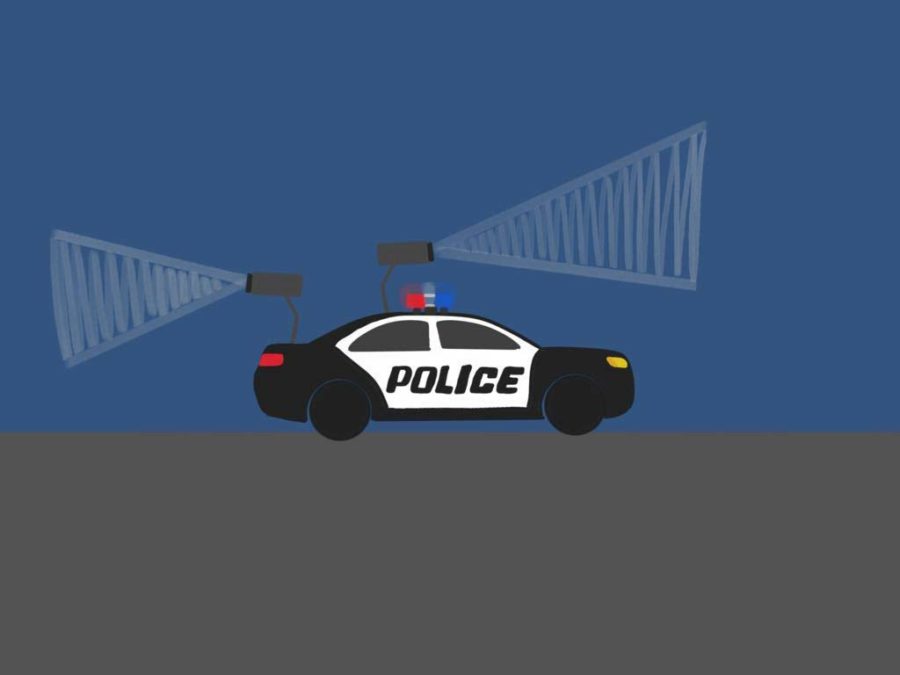Opinion | Automated license plate readers aren’t an invasion of privacy
September 17, 2019
A county judge in Fairfax, Virginia, ruled against the use of data collected from license plate readers in April, reasoning that it was a violation of private information.
The judge’s ruling was not clear on whether it intended to eventually eliminate the use of automatic plate readers, but it would be a mistake to be too restrictive with their use. The Pennsylvania House of Representatives has had its own trouble in finding the Goldilocks middle ground for regulation of the technology, but plate readers are valuable to both law enforcement and citizens in many ways, and they are here to stay.
Automated license plate readers were invented in 1976 and have been widely used since the ’90s. Today, they have the ability to automatically scan any license plates within a 6- to 50-foot range, depending on the quality of the scanner. Their main purpose is to check for speeding and outstanding warrants and to track stolen cars.
Ever since their introduction, automated license plate readers have caused controversy and concern. Some people consider the technology a breach of privacy and in violation of their legal rights to due process, stating that since the plate readers are automated, they also record the private activity of noncriminal citizens. However, people should not be so fearful of this technology, as it is only being used in public spaces for their benefit by increasing the effectiveness of law enforcement.
The increased presence of cameras and monitoring in public spaces can be unsettling to some, but it is important to remember that our roads are public spaces that are maintained by the government and are therefore under government jurisdiction. Police ought to be able to perform their jobs to the best of their ability in these spaces, which can only be accomplished when they have the adequate tools to do so. Privacy is not guaranteed in these spaces. Your safety is the priority.
Police forces from across the country and even up to the federal level have employed thousands of these scanners to monitor the roads, and the results have been dramatic. Use of the scanners resulted in twice as many arrests of carjackers, according to a study conducted by the Police Executive Research Forum.
These scanners are a tool that have allowed the police to do its job better by essentially giving law enforcement a better pair of eyes. Police have always had eyes to read license plates — the reader technology is simply a more effective tool to accomplish that.
It can be concerning to think about whether there are files upon files of data on citizens’ public behaviors just sitting around for anyone to use since there is no current federal-level legislation regulating their use and data storage. But there has been no reported case of such an occurrence. If anything, license plate readers have been more helpful in other more violent crimes, such as tracking down a homicide suspect. It is more likely for these automated readers to help the average citizen in some aspects of their life, from insurance disputes to curbing racial profiling in law enforcement.
The benefits easily outweigh the costs, even for the noncriminal population, since plate readers can also help to reduce the number of police stops made on biased judgments when the task is handed over to a machine. Essentially, the automated reader would determine who is a priority for the police to pursue instead of the officers themselves deciding who to stop amongst the handful of drivers speeding.
The reader also ensures that whoever is being targeted has actually committed a crime. “Driving while black” is a term coined to describe the sharp increase in traffic stops made on people of color as compared to their white counterparts. Everyone has their own internal biases, and if an automated technology can reduce how much these biases affect law enforcement then it should be employed across the country.
Automated license plate readers are only an improvement on how law enforcement is conducted and so far they have only proven to help preserve the safety of communities. It is pessimistic and irrational to doubt the use of this technology and to insist on its removal until the country’s slow legislature imposes more strident regulations on data storage from automated plate readers.
Besides, our devices are already apparently monitoring our behavior, and that occurs in your home. A camera mounted on a telephone pole to monitor daily traffic on public roads, catch reckless drivers pushing 60 mph in a school zone and make sure criminals aren’t fleeing the state is far from being a similar invasion of privacy.
Write to Grace McGinness at [email protected].








